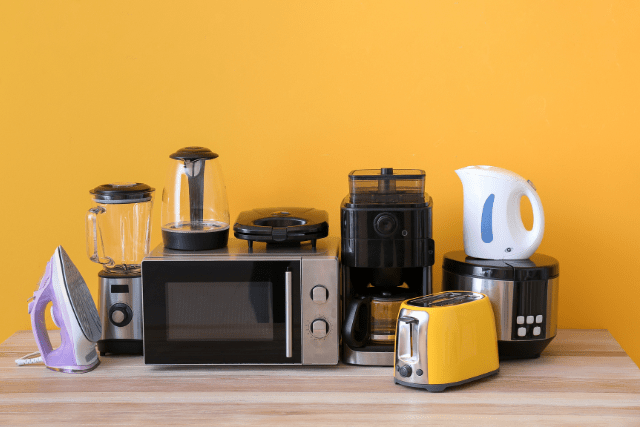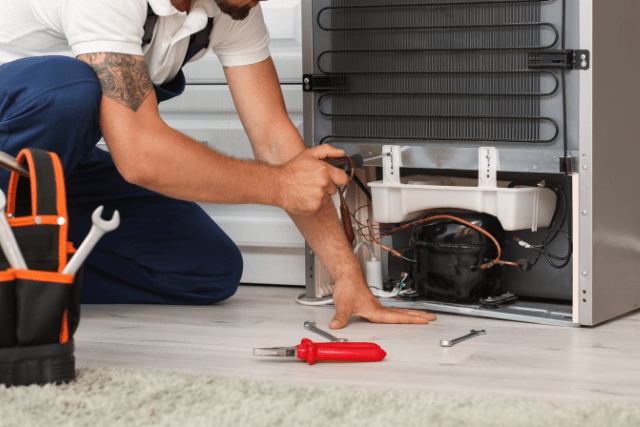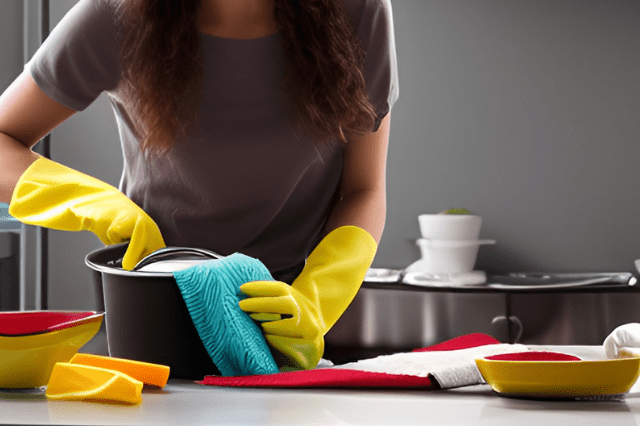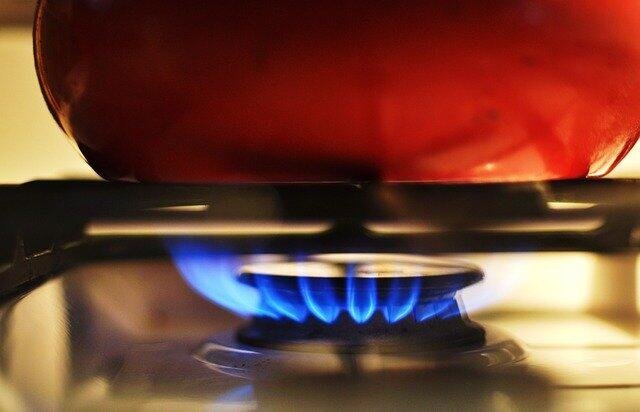Cleaning and repairing electronic appliances, and also keeping your kitchen appliances clean and well-maintained is essential for longevity and optimal performance.
Regular cleaning and timely repairs can help extend the lifespan of your electronic appliances, saving you money and ensuring a functional and efficient kitchen.
In this blog post, we will discuss the best strategy for cleaning and repairing electronic appliances in your kitchen.
Cleaning Electronic Appliances
1. Read the Manufacturer’s Instructions
Before starting any cleaning process, refer to the manufacturer’s instructions for each appliance. These instructions often include specific guidelines on cleaning and maintaining the appliance properly.
2. Unplug the Appliance
Ensure that the appliance is unplugged before cleaning. This prevents any electrical accidents or damage while handling the appliance.
3. Use Appropriate Cleaning Agents
Different appliances may require different cleaning agents. Avoid using harsh chemicals or abrasive cleaners that can damage the surfaces of your appliances. Opt for mild dish soap, vinegar, baking soda, or commercial cleaners designed for electronic appliances.
4. Clean the Exterior
Wipe down the exterior surfaces of your appliances using a soft, damp cloth. Pay attention to areas that accumulate dirt, grease, or fingerprints. Use a stainless steel cleaner to restore their shine for stainless steel appliances.
5. Clean the Interior
For appliances with removable parts or accessories, such as microwave turntables, refrigerator shelves, or dishwasher racks, could you remove them and clean them separately? Use warm, soapy water or a suitable cleaning solution, rinse thoroughly, and allow them to dry before reassembling.
6. Clean Filters and Vents
Many kitchen appliances have filters and vents that require regular cleaning. For example, range hoods, air fryers, and coffee makers often have removable filters that collect grease, dust, or debris. Clean these filters according to the manufacturer’s instructions to maintain proper airflow and functionality.
7. Deodorize and Remove Odors
You can use natural deodorizers such as baking soda or activated charcoal to eliminate odours from appliances like refrigerators or garbage disposals. Place a box of baking soda or a small bowl of charcoal in the appliance to absorb unpleasant smells.

Repairing Electronic Appliances
1. Identify the Problem
If an electronic appliance in your kitchen is not functioning properly, the first step is identifying the problem. Is it a power issue, a mechanical malfunction, or a specific component failure? Try to pinpoint the exact cause before proceeding with repairs.
2. Refer to the User Manual
Consult the user manual or any troubleshooting guides provided by the manufacturer. These resources often contain information on common issues and possible solutions. Follow the recommended steps carefully.
3. Safety First
When repairing electronic appliances, prioritize safety. Always unplug the appliance before attempting any repairs. If the problem involves electrical components or wiring, hiring a qualified professional or an authorized technician is best to avoid potential hazards.
4. DIY Repairs
You may be able to handle the repairs for minor issues like loose screws, faulty knobs, or clogged hoses. Use the appropriate tools and follow instructions provided by the manufacturer or reputable online sources. Be cautious and take necessary precautions to prevent further damage.
5. Professional Repairs
For significant issues or complex repairs involving internal components, it is advisable to seek professional help. Authorized service centers or qualified technicians have the expertise and tools to diagnose and repair appliances safely and effectively.
6. Regular Maintenance
Preventive maintenance is critical to avoiding major repairs. Follow the manufacturer’s recommended maintenance schedule for each appliance. This may include cleaning coils, replacing filters, lubricating moving parts, or checking electrical connections.
7. Warranty Coverage
If your appliance is still under warranty, check the terms and conditions. Some repairs may be covered by the warranty, and attempting repairs alone could void the warranty. Contact the manufacturer or authorized service center for assistance.

Following these strategies for cleaning and repairing electronic appliances in your kitchen, you can ensure their longevity, maintain their performance, and enjoy a functional and efficient kitchen space.
Always prioritize safety, refer to manufacturer guidelines, and seek professional help. Your kitchen appliances will serve you well for years with proper care and maintenance.
Frequently Asked Questions
Q1: How often should I clean my kitchen appliances?
A1: The cleaning frequency depends on the appliance type and usage. As a general guideline, cleaning the exterior of your appliances regularly is recommended, while certain components like filters or vents may require monthly or quarterly cleaning. Refer to the manufacturer’s instructions for specific cleaning recommendations.
Q2: Can I use abrasive cleaners on my kitchen appliances?
A2: Using abrasive cleaners on kitchen appliances is not advisable as they can scratch or damage the surfaces. Opt for mild dish soap, vinegar, baking soda, or commercial cleaners designed for electronic appliances.
Q3: How can I remove stubborn stains or grease from my appliances?
A3: Mix baking soda with water to create a paste for stubborn stains or grease. Apply the paste to the affected area, let it sit for a while, and then gently scrub with a soft cloth or sponge. Rinse thoroughly and dry.
Q4: Is it safe to immerse my appliances in water for cleaning?
A4: Most kitchen appliances should not be fully immersed in water. Avoid submerging electrical components or the main body of the appliance. Instead, use a damp cloth or sponge to clean the exterior surfaces. Refer to the user manual for specific cleaning instructions for each appliance.
Q5: How can I prevent odors in my refrigerator?
A5: To prevent odors in your refrigerator, regularly clean spills and expired food, and keep the interior dry. You can also place an open box of baking soda or a small bowl of activated charcoal to absorb odors.
Q6: What should I do if my appliance stops working suddenly?
A6: First, check if the appliance is properly plugged in and the circuit breaker hasn’t tripped. Ensure that the power supply is functioning correctly. If the problem persists, consult the user manual for troubleshooting tips or contact the manufacturer’s customer support for assistance.
Q7: Are there any maintenance tasks I can do to prolong the life of my appliances?
A7: Yes, regular maintenance can help extend the life of your appliances. Tasks may include cleaning filters, lubricating moving parts, checking seals or gaskets, and keeping the appliances free from excessive dust or debris. Refer to the user manual or manufacturer’s recommendations for specific maintenance tasks.
Q8: Can I repair my appliances myself if they break down?
A8: For minor repairs like loose screws or clogged hoses, you may be able to handle them yourself. However, it is best to seek professional help to avoid safety risks and further damage for more complex issues or repairs involving electrical components.







